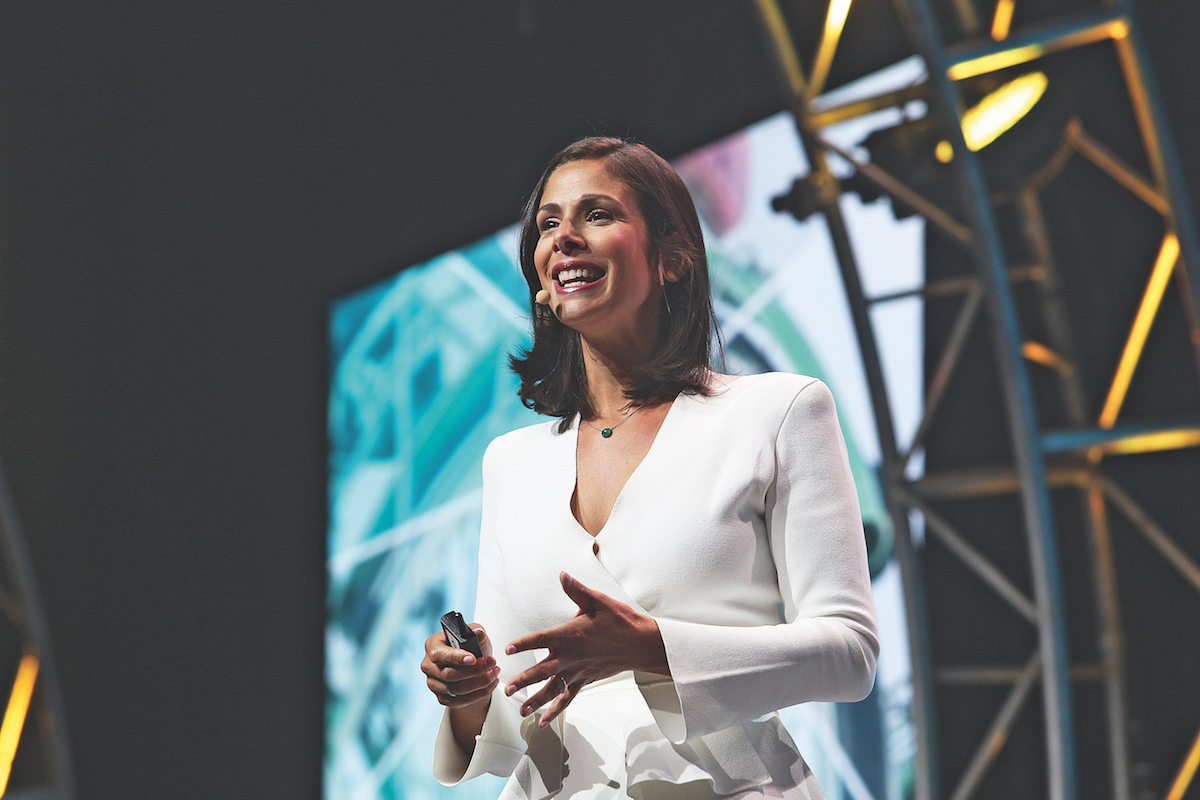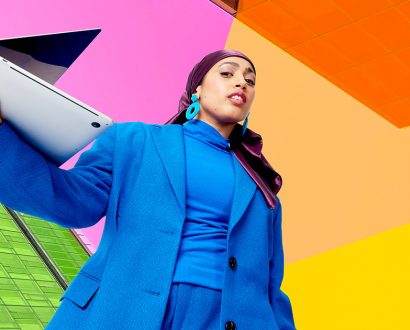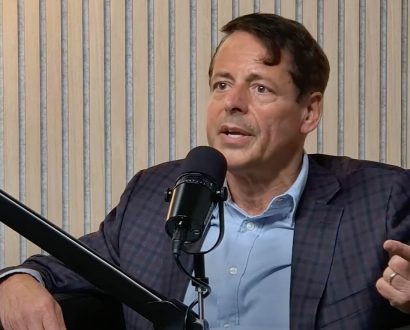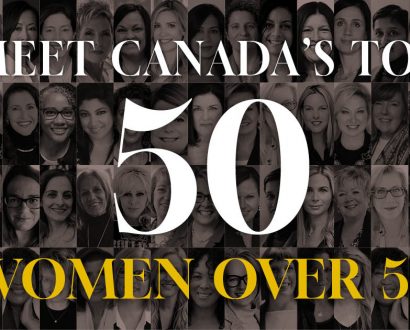About five years ago, the big idea of a ‘trust shift’ from institutions to individuals started forming in my mind. Why was our trust in traditional institutions being eroded and yet we were trusting new technologies? Why do people say they don’t trust bankers or politicians yet trust strangers to share a ride with them?
I have always enjoyed deconstructing vast complicated topics. Trust is a big word, one we use a lot, and that touches so many different areas of life, from love to politics to technology. I thought, can I take this topic that is quite elusive and unpack it to a point of simplicity so that more people can see how it really works and how important it is to a healthy business and society? The passion comes less from cynicism and more from a place of intense curiosity. With any topic, my fascination is amplified by current events in business and politics.
I was intrigued by how Brexit and the election of President Trump were connected by a crisis of faith in traditional authorities. And then there seemed to be trust breaches on a daily basis, from the Volkswagen emissions scandal to the Equifax data breach, to the Paradise Papers and Facebook/Cambridge Analytica exposé, not to mention the many and various banking scandals.
This question of ‘who we trust’ is one of the most pressing issues that we face. It’s not a lack of trust but rather a case of placing too much trust in the wrong people, products and places. That’s why I decided to write Who Can You Trust? – to hopefully give people the information to ask better questions and tools to decide: Is this person, information or thing worthy of my trust?
It’s not a lack of trust but rather a case of placing too much trust in the wrong people, products and places.

Trust on speed
Significantly, this trust shift is taking place in a landscape of rapidly evolving technologies, from AI to blockchain to the IoT. We are already putting our faith in algorithms rather than humans in our daily lives, whether it’s trusting Amazon’s recommendations on what to read or Netflix’s suggestions on what to watch. But this is just the beginning. We will soon be riding around in self-driving cars, trusting our very lives to the unseen hands of technology. It’s an age of trust on speed, one in which we increasingly outsource our capacity to trust to algorithms.
Technology is enabling and accelerating millions of people to take what I call a ‘trust leap’, which occurs when we take a risk and do something new or in a fundamentally different way. And our banking habits are full of these. For instance, the first time people switched from bartering real goods to using paper money. Do you remember the first time you used an ATM? How about when you first put your credit card details into an internet site? That is a trust leap. Humans are remarkably good at taking trust leaps to break down barriers and to create new forms of value. The difference today is we are being asked to leap faster and higher than ever before.
Talk the (TED) Talk
“As a TED Speaker myself, I enjoy the talks of people such as Alain de Botton, Adam Grant, Steven Johnson, Dan Ariely and Daniel Kahneman. I also read the work of people studying things different from me such as Timothy Snyder or Jonathan Haidt. I love reading anything by Michael Lewis and Malcolm Gladwell. There is a powerful cadence to their storytelling that is pure genius.”
Putting your faith in AI
One of the issues we face today is the speed and ease with which we are trusting bots and machines. And when we are in an accelerated mode of trust, we can be impulsive. For example, sharing a link without ever reading the article or watching the clip.
With regards to AI, a significant shift is underway; we are no longer trusting machines to just do something but also to decide if, what and when we should do it. That’s huge.
This trust leap, and others like it, introduces a new dimension that encompasses everything from smart programming to centuries-old ethics. It raises a new and pressing question about technology: whether we’re talking about a chatbot, cyborg, virtual avatar, humanoid robot, military droid or a self-driving car, when an automated machine has that kind of power over our lives, how do we set about trusting its intentions?
Who or, more precisely, what exactly are we trusting when we put our faith in an AI device? An algorithm, an individual programmer, the corporation behind both of these? How do we teach our children to question not only the security and privacy implications but also the ethical and commercial intentions of a device designed by marketing and technology experts?
The Fourth Industrial Revolution
There’s lots to be optimistic about with the advent of the Fourth Industrial Revolution. I think we’re living in a time when we can use technology to redesign systems that are more inclusive, accountable and fair.
If I had to choose to align myself with one of the science and tech greats of our time, it would probably be Bill Gates because he seems to be a pragmatic optimist. I think his idea that your body will live in the present, but your brain/mind could live in the future could be true. I share his concerns about humans staying in control of the machines. And while I agree with him that countless jobs will be lost to automation, I’m not sure about his idea of taxing the robots!
A world with more trust, when given out properly, disrupts many of the systems and monopolies that benefited the privileged few, rather than the 99%. It can break down oppression and empowers people left behind in the age of institutional trust. Just look at how M-Pesa, the peer-to-peer mobile banking system is transforming lives in countries like Kenya and Uganda.
But my optimism for the future comes with big caveats. The consequences of a redistribution of trust are vast. You must be very conscious of who is filling the vacuum and what their intentions are: from bots and algorithms cleverly designed by tech experts, to populist politicians riding the cynical wave of mistrust to their own ends. We need to question, challenge and test these people (or bots) every step of the way because trust is society’s most precious asset.







